Related Research Articles

The Second Great Awakening was a Protestant religious revival during the early 19th century in the United States. It spread religion through revivals and emotional preaching and sparked a number of reform movements. Revivals were a key part of the movement and attracted hundreds of converts to new Protestant denominations. The Methodist Church used circuit riders to reach people in frontier locations.
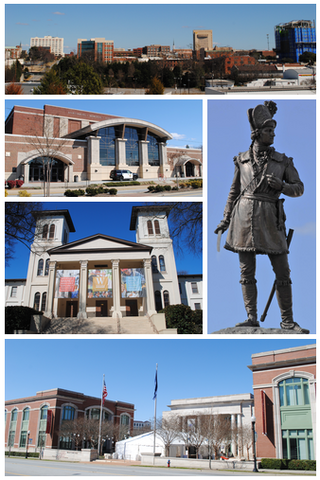
Spartanburg is a city in and the seat of Spartanburg County, South Carolina, United States. The city had a population of 38,732 as of the 2020 census, making it the 11th-most populous city in the state. For a time, the Office of Management and Budget (OMB) grouped Spartanburg and Union counties together as the Spartanburg, SC Metropolitan Statistical Area, but the OMB now defines the Spartanburg, SC MSA as only Spartanburg County.
The Methodist Episcopal Church (MEC) was the oldest and largest Methodist denomination in the United States from its founding in 1784 until 1939. It was also the first religious denomination in the US to organize itself nationally. In 1939, the MEC reunited with two breakaway Methodist denominations to form the Methodist Church. In 1968, the Methodist Church merged with the Evangelical United Brethren Church to form the United Methodist Church.
The Methodist Episcopal Church, South was the American Methodist denomination resulting from the 19th-century split over the issue of slavery in the Methodist Episcopal Church (MEC). Disagreement on this issue had been increasing in strength for decades between churches of the Northern and Southern United States; in 1845 it resulted in a schism at the General Conference of the MEC held in Louisville, Kentucky.
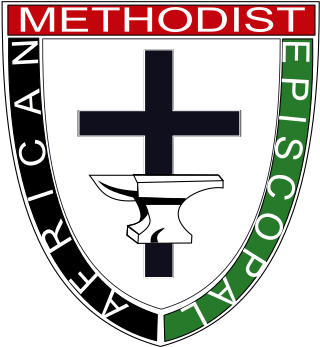
The African Methodist Episcopal Church, usually called the AME Church or AME, is a Methodist Black church. It adheres to Wesleyan-Arminian theology and has a connexional polity. The first independent Protestant denomination to be founded by black people, AME welcomes and has members of all ethnicities.
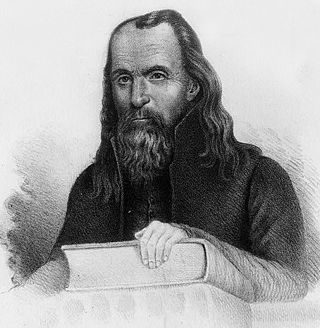
Lorenzo Dow was an eccentric itinerant American evangelist, said to have preached to more people than any other preacher of his era. He became an important figure and a popular writer. His autobiography at one time was the second best-selling book in the United States, exceeded only by the Bible.

Wofford College is a private liberal arts college in Spartanburg, South Carolina. It was founded in 1854. The 175-acre (71 ha) campus is a national arboretum and one of the few four-year institutions in the southeastern United States founded before the American Civil War that still operates on its original campus.

James Osgood Andrew was elected in 1832 an American bishop of the Methodist Episcopal Church. After the split within the church in 1844, he continued as a bishop in the Methodist Episcopal Church, South.
Marshall Keeble was an African American preacher of the church of Christ, whose successful career notably bridged a racial divide in an important American religious movement prior to the Civil Rights Movement. Over the course of his 50-year career as a gospel preacher, he was credited with starting almost every African-American church of Christ in the state of Tennessee. Keeble enjoyed an almost unrivaled position as an African-American subject of hagiographical biography by white contemporaries within the church of which Keeble was a member. A notable example of this is Roll Jordan Roll by fellow minister and longtime Keeble associate, J. E. Choate.

John Thornton (1720–1790) was a British merchant and Christian philanthropist who became immensely wealthy through investment in the North Sea Russia trade, and as a result of his Christian faith, gave much of his money away to a huge number of good causes, in so doing becoming the greatest philanthropist of the eighteenth century. Hugely successful in business, it was said that at the time of his death in 1790, Thornton had become the second most wealthy man in Europe.

John Early was instrumental in organizing the Methodist Episcopal Church, South, and was their bishop from 1854.
Dr. Henry Nelson Snyder (1865–1949) was an American Methodist educator and author. He served as president of Wofford College from 1902 until his retirement in 1942.

Edward Culliatt Jones was an American architect from Charleston, South Carolina. A number of his works are listed on the U.S. National Register of Historic Places, and two are further designated as U.S. National Historic Landmarks. His works include the following :
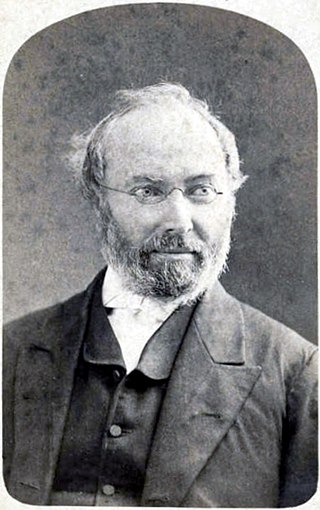
Thomas OsmondSummers was an English-born American Methodist theologian, clergyman, hymnist, editor, liturgist and university professor. He is considered one of the most prominent Methodist theologians of the nineteenth century.
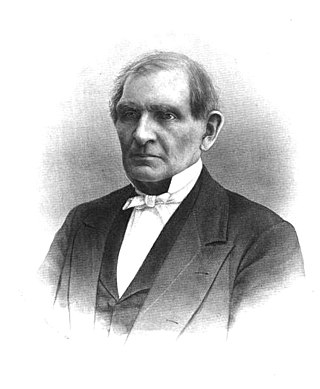
John Berry McFerrin (1807–1887) was an American Methodist preacher and editor. He served as a chaplain in the Confederate States Army during the American Civil War.
Albert Micajah Shipp (1819–1887) was an American Methodist minister and university administrator.

Carlisle Military School was established in 1892 at Bamberg, South Carolina, as The Carlisle Fitting School of Wofford College and closed in 1977. This school was named in honor of Dr. James H. Carlisle, who was the president of Wofford College in Spartanburg, South Carolina (1875–1902) and one of the most preeminent educators in the history of South Carolina. Dr. Carlisle stated that "The student ought to be educated not simply or chiefly because he intends to become a farmer, lawyer, or statesman, but because he is a human being - with inlets of joy, with possibilities of effort and action that no trade or calling can satisfy or exhaust".
Bishop William May Wightman (1808–1882) was an American educator and clergyman. He served as the President of Wofford College from 1853 to 1859. He served as the Chancellor of Southern University in Greensboro, Alabama from 1860 to 1866. He became a Bishop of the Methodist Episcopal Church, South in 1866.
Jesse Walker was the Buckingham County, Virginia-born Methodist minister who built Missouri's first Methodist church in the predominantly French-Catholic city of St. Louis, Missouri in 1819, and the first Methodist church in Chicago, Illinois in 1831. He organized this first permanent Methodist group in Missouri at St. Louis on January 7, 1821, after previously finding 20 members in 1807. On August 10, 1821, Missouri entered the Union as the 24th state. In 1822, the Methodists held their annual conference in St. Louis.
References
- ↑ Stone, Phillip. "Benjamin Wofford". Wofford.edu. Wofford College. Retrieved March 14, 2022.
Ben's desire to marry was probably chiefly responsible for his decision to leave the active ministry, for his ownership of slaves would not have prevented him from serving in South Carolina.
- ↑ David Duncan Wallace, History of Wofford College (Nashville: Vanderbilt University Press, 1951) pp. 48-56
- ↑ "Wofford College - Benjamin Wofford". Archived from the original on 2014-06-03. Retrieved 2013-03-09.
- ↑ Phillip Stone, Wofford College (Arcadia Publishing, 2010)